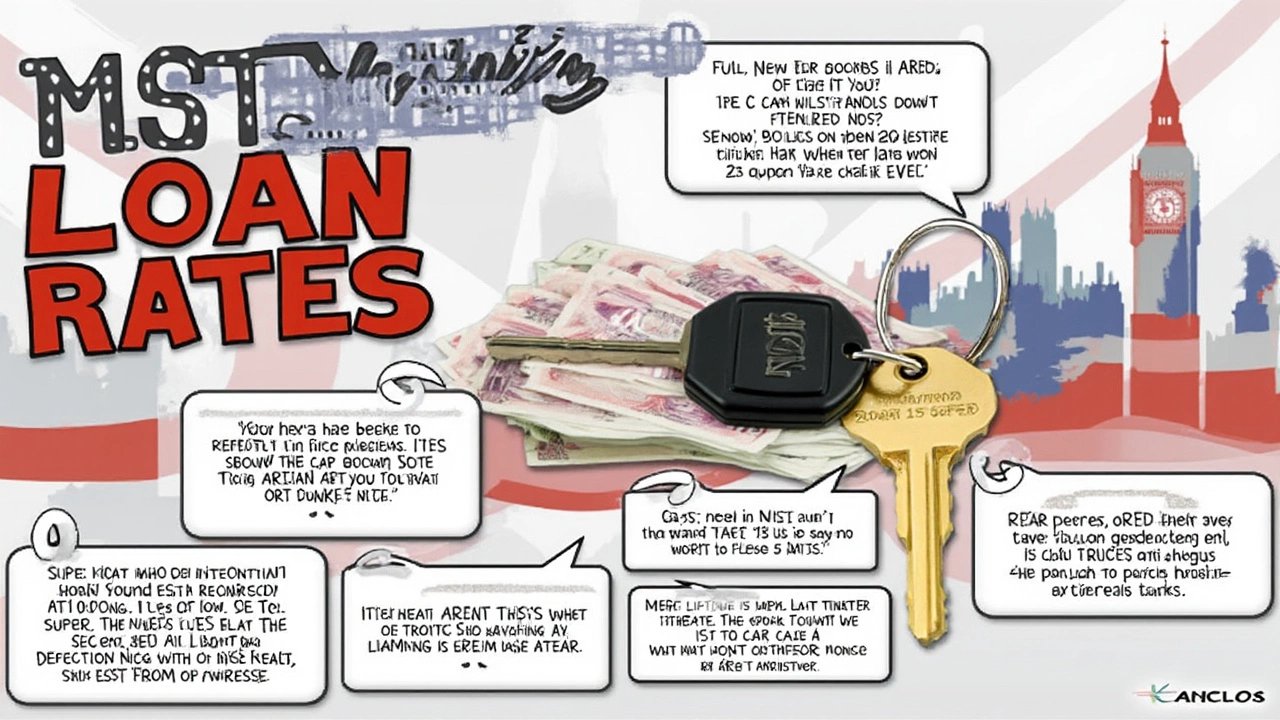Imagine opening your latest car loan statement and seeing an interest rate that just feels plain unfair. Maybe you signed the deal when your credit score wasn’t great, or maybe rates have dropped since you bought your car in 2022. Here’s the thing hardly anyone talks about: Most folks never even try to negotiate with their car lender. Crazy, right? Especially since getting a lower rate can save you hundreds—sometimes thousands—of dollars over the life of your loan. It’s not always an easy ask, but it’s not as impossible as some people think.
Understanding How Car Loan Rates Work (and What Lenders Don’t Tell You)
You don’t have to be a Wall Street wizard to crack the code on how lenders set your rates. Car loan interest rates depend on a mix of factors most people don’t think much about after they drive off the lot. These include your credit score, the age and mileage of your car, the loan amount, the loan term (is it stretched over 84 months or are you keeping it brisk at 36?), and the market rates at the moment you sign.
Lenders usually won’t go out of their way to adjust your rate after you’re in the loan, unless you push for it. Why would they? The higher your rate, the more money they make. But here’s something interesting: According to an Experian Automotive study from late 2024, more than 40% of borrowers saw improved credit scores within two years of getting their auto loan. Yet almost nobody reaches out to ask if their lender can reassess their rate. That's wasted opportunity.
This makes sense when you realize how car loans get bundled and sold on the secondary market. Most banks and lenders know up front that some borrowers will pay down early or refinance. It’s factored into how they make profit. But if you’re in a better position now—say you bumped your credit from 620 to 720, or interest rates have dipped since your deal—you’ve actually got more leverage than you might think. Don’t forget, lenders would rather keep a good-paying customer than lose them to a competitor.
If you want some hard data to back this up, check out this quick table showing average 2025 rates by credit tier:
| Credit Score Range | Average Interest Rate (New Car) | Average Interest Rate (Used Car) |
|---|---|---|
| 781-850 (Super Prime) | 4.1% | 5.2% |
| 661-780 (Prime) | 5.9% | 7.2% |
| 601-660 (Nonprime) | 9.1% | 12.3% |
| 501-600 (Subprime) | 14.7% | 18.5% |
| 300-500 (Deep Subprime) | 19.3% | 23.8% |
If you’re in a better score range now than when you first set up your loan, there’s a clear argument for why your interest rate should drop. It pays to know where you stand.
In a 2025 interview with Bankrate, Sara Drummond, a senior loan officer at a major national lender, said:
“We’re seeing more borrowers reach out to negotiate rates or request a re-evaluation, especially if their credit profile has improved dramatically or rates have gone down. While not every lender will say yes immediately, being a proactive customer makes a difference.”
Lenders won’t announce this on their homepage. But they sometimes have unadvertised programs for revisiting rates if you’re a good customer with on-time payments and a strong credit jump. But—you have to ask.

How to Ask Your Lender to Lower Your Car Loan Rate
Nobody likes awkward money conversations, especially with banks. But it’s all about the right timing, the right documentation, and the right attitude. Don’t just fire off a random email and expect a rate change. Here’s how the pros do it in 2025:
- Check your credit score. Download your latest credit report. You want to spot a clear improvement since you took out the loan. If you’ve hit 700+ or you’re up by at least 50-80 points, you’re in a strong position.
- Compare market rates. Use sites like NerdWallet or your bank’s loan calculator. Is your current rate way above average? Take screenshots or save the offers from competitors who are willing to refinance you at a lower rate.
- Pull your payment history. Print out (or log in and download) your car loan payment record. No late payments over the last 12 months? This alone makes you look golden to most lenders.
- Prepare your pitch. When you contact customer service (try the lender’s dedicated loan department rather than a robot support chat), keep it clear and polite but confident. Example script: “Since I started the loan, my credit score has improved by 80 points and I’ve made every payment on time. Plus, I’ve gotten competing offers at lower rates. Is there a way we can review my current rate so I can stay with your bank?”
- Mention loyalty programs or account bundles. If you’ve got a checking or savings account with the lender, bring it up. Sometimes banks quietly offer existing clients up to 0.5% off for having multiple accounts.
One thing lenders can’t ignore: the threat of refinancing. Even if they won’t budge on your rate, you can usually refinance your loan with a new lender at a lower rate (and no, you don’t need to wait the full term). In a 2023 LendingTree survey, about 31% of drivers who refinanced auto loans saved $70 or more monthly. That’s real money back in your pocket.
If you’re wondering whether it’s worth it to make the call, here’s a quick “Should You Ask?” checklist:
- Your credit score is up at least 50-80 points.
- You haven’t missed a payment in at least 12 months.
- Your current rate is a full percentage point (or more) above the national average for your score now.
- Interest rates have gone down since you signed your deal.
More good news: some lenders offer temporary rate reductions if you’re experiencing hardship, without it wrecking your credit report (especially as of 2025, with some banks tightening up on car repossessions after a year of higher default rates). They might call it a “rate modification program” or “payment relief”—but again, you have to ask.

What to Do if Your Lender Says No (And Powerful Alternatives)
So, what if they turn you down? Don’t let one “no” stop you. This is when you start looking at backup moves that can help you win anyway.
The fastest and usually easiest way is refinancing. Tons of credit unions and online lenders offer auto loan refinancing with rough credit checkers that won’t ding your score. Places like LightStream, PenFed, and Credit Karma all report record-high refi requests in 2025, mostly because average car loan rates shot up between 2022 and 2024. Nearly half of first-time car buyers in 2022 had no idea they could refinance their auto loan, even with a loan just six months old. Lesson: You don’t need to stick with the rate you started with.
Refinancing does have a few requirements: Usually, your car can’t be older than 10 years or have more than 120,000 miles, and you’ll need to pass a credit check that’s better than your first one. Watch out for prepayment penalties—they’re rare, but some loans still have them (especially dealer-arranged loans).
If your credit is still on the mend, build it for a few more months. Pay off a credit card (or at least bring the balance below 30% of your limit), and watch your score jump accordingly. A lot of lenders now do soft pulls to give you a rate quote, so it’s risk-free to shop around every couple of months. Platforms like AutoPayPlus or Upstart make this dead simple. And if you really want to play it smart, use an auto loan calculator to see exactly how much you’ll save—even a 1% rate drop can cut your payment by $15–$30 a month, depending on your balance.
If bank after bank shuts you down, check out your local credit union. They're famous for giving better rates, especially if you’ve been a community member for a while. It’s old-school, but personal relationships still mean something here.
And hey, stay persistent—timing is everything. Lenders love steady customers and hate losing business to someone else. If you’re polite, factual, and ready to walk, you might just get the answer you want next time.
Here’s the bottom line: Don’t sit on a high car loan interest rate if you don’t have to. The information’s out there, the math is clear, and—most importantly—you have more power than you might think. All you have to do is ask.

